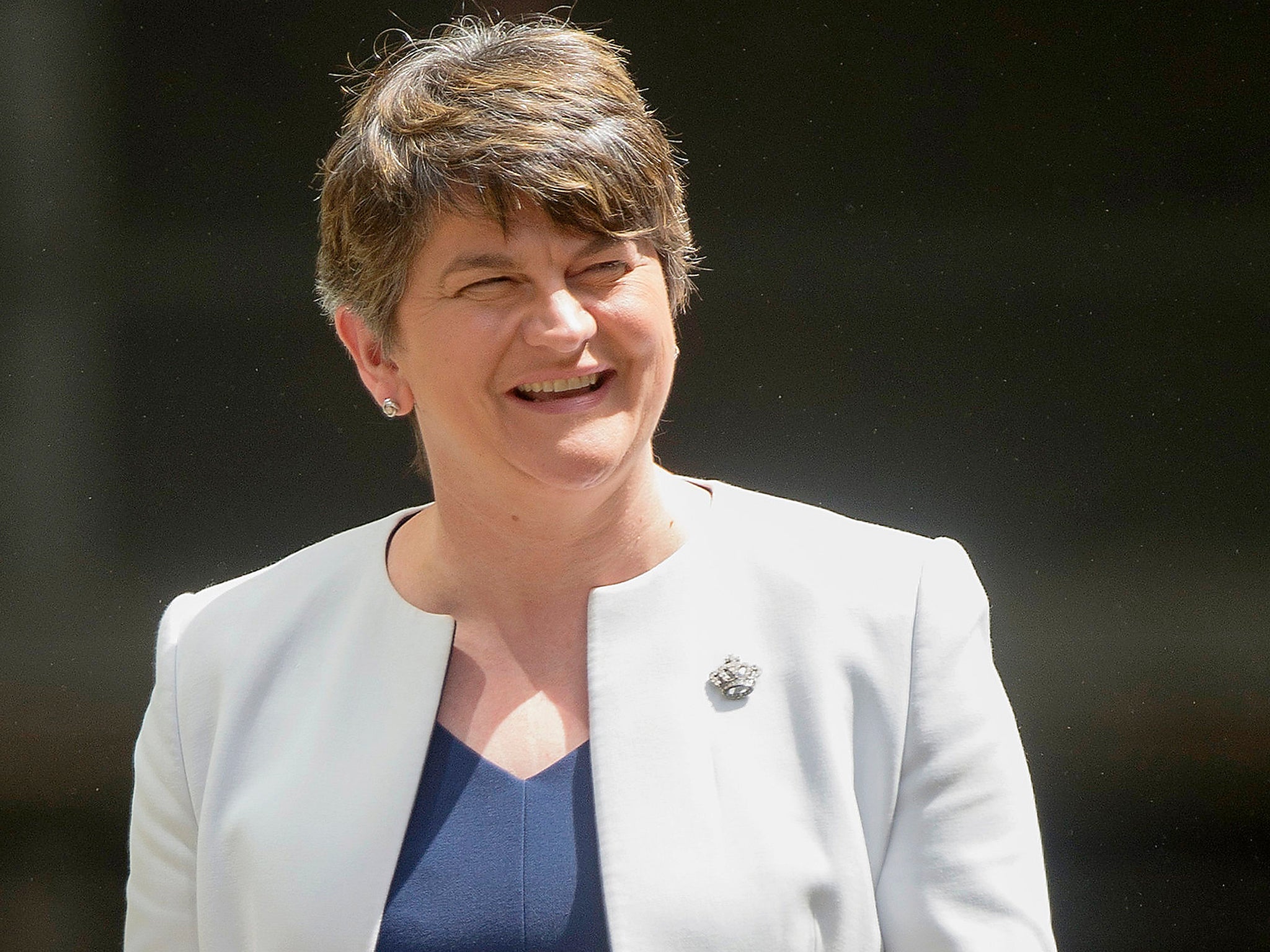Brexit: DUP warned Theresa May not to go ahead with breakthrough deal because Tory backbenchers oppose it
‘We cautioned the Prime Minister about proceeding with this agreement in its present form, given the issues which still need to be resolved and the views expressed to us by many of her own party colleagues’

The Democratic Unionist Party has revealed that it urged Theresa May not to press ahead with today’s breakthrough deal – because Tory backbenchers had said they oppose it.
The Northern Ireland party pointed to major trouble ahead, by revealing recent private concessions with Conservative backbenchers unhappy about the concessions being made by the Prime Minister.
It also made clear it could yet vote against any final Brexit deal unless unanswered questions about the consequences of “regulatory alignment” with the EU, to avoid a hard Irish border, were settled satisfactorily.
Arlene Foster, the DUP leader, said: “We cautioned the Prime Minister about proceeding with this agreement in its present form, given the issues which still need to be resolved and the views expressed to us by many of her own party colleagues.
“However, it was ultimately a matter for the Prime Minister to decide.”
Speaking in Brussels, Ms May herself admitted that “specific solutions to what are the unique circumstances of Northern Ireland” must still be found – suggesting the deal is still a fudge.
The Irish Government insisted it had achieved all that it had been seeking in the intensive negotiations over the last few days, pointing to a “guarantee of avoiding a hard border” in the new text.
It reads: “In the absence of agreed solutions, the United Kingdom will maintain full alignment with those rules of the Internal Market and the Customs Union which, now or in the future, support North-South cooperation, the all island economy and the protection of the 1998 Agreement.”
Similarly, the DUP agreed to move ahead because the Stormont Assembly – when restored – will enjoy a block on any new trade barriers between the Northern Ireland and the UK.
But many Tory MPs are known to oppose this “alignment”, fearing it will prevent the UK striking trade deals with countries outside the EU, seeking different regulations on food and manufactured goods.
The Prime Minister hopes to square the circle by reaching an over-arching free trade agreement with the EU, to begin in 2021 – after a transitional period – that will remove all barriers.
But it may impossible to strike such an agreement. Furthermore, experts have warned it will fall short of the open access currently enjoyed in the single market and customs union.
At a press conference, Ms Foster made clear the DUP believed there was “still more work to be done” on trading outside the EU’s economic structures.
However, it hailed key victories to ensure there will be no separate trading rules for Northern Ireland after Brexit, as appeared possible when it vetoed an original draft on Monday.
“There will be no so-called “special status” for Northern Ireland as demanded by Sinn Fein,” Ms Foster said.
And she added: “We do however welcome the assurance given by the Prime Minister and Brexit Secretary in Parliament that any alignment will be done on a UK-wide basis, ensuring that there would be no barriers to trade between Northern Ireland and our most important market in the rest of the UK.
“We will play a full part with the Government in the second stage of the negotiations on a comprehensive trade deal. Nothing is agreed until everything is agreed and how we vote on the final deal will depend on its contents.”
In a letter to people of Northern Ireland, the Prime Minister wrote: “These commitments are consistent with our steadfast support for the Belfast Agreement and its successors; the principles that underpin them; the institutions they establish; and, the rights and opportunities they guarantee for everyone.
“This Government will continue to govern in the interests of the whole community in Northern Ireland and uphold the Agreements that have underpinned the huge progress that has been made over the past two decades.”
Subscribe to Independent Premium to bookmark this article
Want to bookmark your favourite articles and stories to read or reference later? Start your Independent Premium subscription today.

Join our commenting forum
Join thought-provoking conversations, follow other Independent readers and see their replies